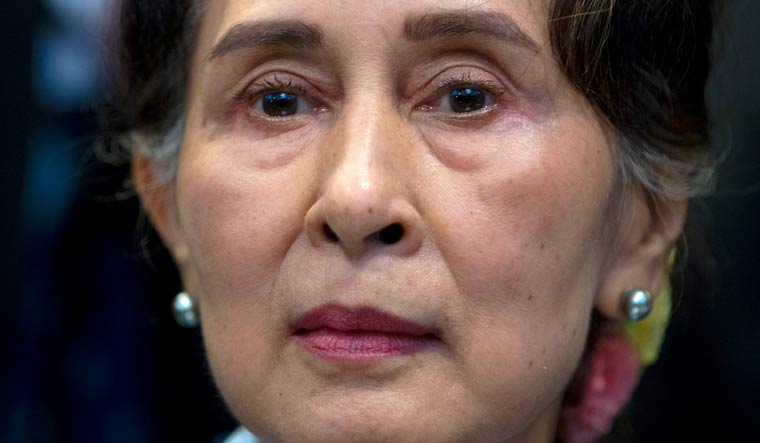Myanmar will not participate in this week's meetings in Cambodia of foreign ministers from the Association of Southeast Asian Nations, spurning an invitation to send a non-political representative instead of its chief diplomat, its government said Monday.
Cambodia, the current ASEAN chair, said earlier this month that members of the regional group had failed to reach a consensus on inviting Myanmar Foreign Minister Wunna Maung Lwin to its meetings on Thursday and Friday in Cambodia's capital, Phnom Penh.
Wunna Maung Lwin was appointed foreign minister after the military seized power in Myanmar last year, ousting the elected government of Aung San Suu Kyi.
The decision to restrict Myanmar's participation reflected a disagreement over Myanmar's lack of cooperation in implementing measures agreed upon by the 10-member group last year to help ease that country's violent political crisis following the army's takeover.
The head of Myanmar's military government, Senior Gen. Min Aung Hlaing, was not invited to last October's virtual meeting of ASEAN leaders because of the disagreement. That rebuke was issued shortly after Myanmar declined to let an ASEAN special envoy meet with Suu Kyi, who has been in detention since the military took power.
Despite the efforts made by the ASEAN chair and Myanmar to promote cooperation in ASEAN, it is regrettable to see the return of the decision made last year which Myanmar in principle is unable to accept, Myanmar's Foreign Affairs Ministry said in a statement Monday night.
In this regard, Myanmar's inability to participate or even designate a non-political representative ... is inevitable since it contradicts the principles and practice of equal representation in ASEAN.
ASEAN was chaired by Brunei when it snubbed Min Aung Hlaing, but under its annual rotation system, Cambodia now heads the group. Cambodian Prime Minister Hun Sen has said he believes it is important that Myanmar attend the next summit meeting.
Hun Sen traveled to Myanmar in January, becoming the first foreign leader to visit since the military takeover. He has repeatedly declared his interest in resolving the impasse between ASEAN and Myanmar.
Japan's foreign minister met in Tokyo on Monday with Hun Sen's son and agreed to cooperate in dealing with the situation in Myanmar. Hun Manet, who heads Cambodia's army and is Hun Sen's favored successor, accompanied his father during his visit to Myanmar.
Japan has taken a softer line on Myanmar's military than Western nations that have sanctioned the generals. But in a sign that attitudes in Japan are mixed, Japanese brewery Kirin Holdings announced on Monday that it has decided to withdraw from its business in Myanmar and terminate its joint venture with a military-linked partner.
Cambodia's Chum Sounry said the failure to reach a consensus about inviting Myanmar to this week's foreign minister's meeting was due to little progress in carrying out the ASEAN's 5-Point Consensus, agreed to by all the group's members, including Myanmar.
ASEAN leaders at a special meeting last April issued a statement expressing a consensus calling for the immediate cessation of violence, a dialogue among all concerned parties, mediation by an ASEAN special envoy, provision of humanitarian aid through ASEAN channels, and a visit to Myanmar by the special envoy to meet all concerned parties.
Myanmar has not rejected the consensus but has done little to implement it.
Myanmar's military council has also continued its harsh military actions against areas of the country where it faces a low-level insurgency, as well as its relentless effort to prosecute Suu Kyi to remove her from political life.
Suu Kyi went on trial on Monday on election fraud charges, the latest in a series of criminal prosecutions by the military-run government in which she has already been sentenced to six years in prison.
The army said it seized power because of widespread voter fraud in the 2020 general election, an allegation not corroborated by independent election observers. Suu Kyi's National League for Democracy party won the election by a landslide, while the military-backed party did poorly.
The military's takeover prompted widespread peaceful protests and civil disobedience that security forces suppressed with lethal force. About 1,500 civilians have been killed, according to the Assistance Association for Political Prisoners. Some opponents of the military have turned to armed resistance in response.
Suu Kyi, 76, has faced a raft of charges since she was taken into custody. Her supporters and human rights groups say the cases against her are baseless.











